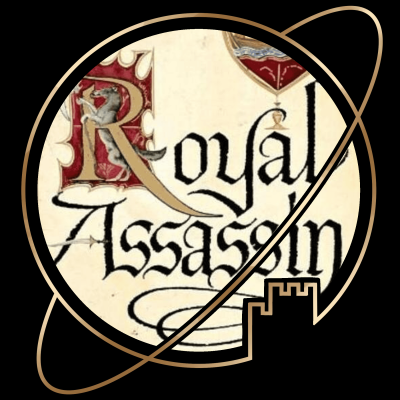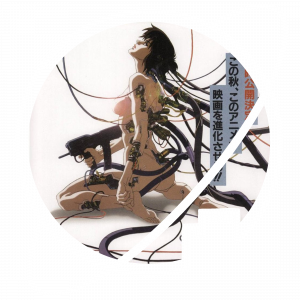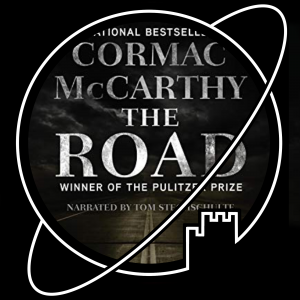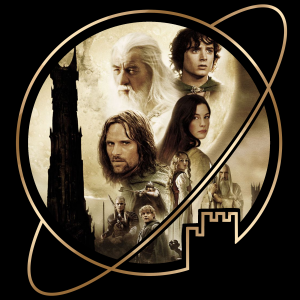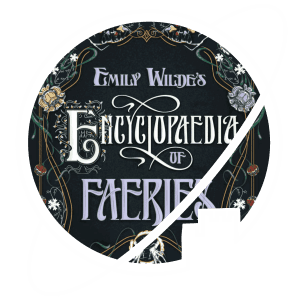Welcome to the Escape Velocity Collection!
We are an opinionated group of friends reviewing all sorts of fantasy and science fiction media. Don’t forget to get to know the curators and visit our curated Collection, where we discuss the stories that never cease to transport us to another world.
Will you escape with us?
LATEST POSTS:
- Book written by Robin Hobb
- Published in 1997
- Part 3 of the Farseer Trilogy
- Third part of the Realm of the Elderlings Series
The king is dead, Prince Verity is missing in action, and Prince Regal has left the coastal duchies to their own devices against the Red Ship Raiders. Meanwhile, Fitz has trouble forgetting his treatment in Regal’s dungeons.
The Farseer family needs him now more than ever, but Fitz finds himself in an unique situation. In a world that believes him to be dead, he finally has the chance to start anew. On the other hand, this might be the perfect opportunity to enact his revenge on those who hurt him…

If you’ve read Royal Assassin, it won’t have escaped your attention that we left the Six Duchies and our characters in quite a precarious state. This book picks up almost precisely where the last one ended, and (as the title adeptly announces) will bring us a quest that will decide everyone’s fate.
For the first time since we’ve known him, Fitz will be dependent on his own capabilities and insights before he is reunited with some of the other characters we’ve come to love. Some people might find the pacing of these chapters erring on the slow side, I think, but they contain some important (character) developments. Furthermore, this book treats us to some intriguing worldbuilding lore.
If you ask me, one of Robin Hobb’s greatest strengths as a writer is the way she constructs life-like endings. The ending of an epic-scale plot point does not necessarily result in a neatly rounded conclusion for its characters, and I feel many authors often forget about this. Sure, Robin Hobb will provide you with closure, but as long as the characters still live, they will have stories to tell. These low-key ambiguous endings are part of why my thoughts, sooner or later, always return to Robin Hobb’s books. The conclusion of Assassin’s Quest is a wonderful example of such a pleasantly haunting ending.
If you liked The Farseer Trilogy (as you should), don’t hesitate to continue with the other books in The Realm of the Elderling series. Eventually, you’ll arrive at Fool’s Errand, which might just be my favourite!
Tagged:
- Movie directed by Peter Jackson
- Based on The Fellowship of the Ring by J.R.R. Tolkien
- Starring Elijah Wood, Ian McKellen, Liv Tyler, Viggo Mortensen, Sean Astin, Cate Blanchett, John Rhys-Davies, Billy Boyd, Dominic Monaghan, Orlando Bloom, Christopher Lee, Hugo Weaving, Sean Bean, Ian Holm, Andy Serkis, and others
- Published in 2001
- Runtime: 178 minutes (theatrical edition) or 208 minutes (extended edition)
- Part one of the Lord of the Rings Trilogy
Frodo Baggins is a halfling from a peaceful land who gets entangled in the affairs of the Big Folk when it turns out the ring of his uncle is the key to defeating the Dark Lord Sauron forever.
What follows is a quest through unkown and dangerous lands, to ensure the Ring won’t fall into the wrong hands.

(Nota bene: this review relates to the extended edition of the movie. Though I’ve once seen the theatrical editions of the The Lord of the Rings trilogy, the extended editions always have my preference, and I’ve seen them more times than I can count.)
As I’ve also stated in the Collection post: I absolutely love these movies. The writing, the acting, the music, the cinematography, the art and the landscapes, the lack of toxic masculinity; everything is simply magnificent.
The Fellowship of the Ring’s greatest strength (compared to its sequels) is the sense of magical adventure that is so eminent at its core. Though the stakes are ultimately high, the protagonists’ journey is still small scale. They travel through stunning wildernesses and explore impressive deserted civilizations without being drawn into complicated politics and subplots. The goal and obstacles are clear, but many other things are still clouded by mystery.
Whenever I’m trekking through mountains or forests with my friends, I fondly think of the Fellowship’s adventures in this movie.
If you are in the unique position of having never seen these movies, don’t be discouraged by the lore exposition The Fellowship of the Ring begins with. Even if things are unclear at first, you’ll catch up on the details later on. This movie works well if you simply let the story wash over you, similar to how Frodo is pulled into an adventure he hardly understands. It’s a unique feeling I’d gladly experience all over again, given the chance.

There is really only one reason to be reviewing The Fellowship of the Ring, and that is to celebrate the masterpiece it is.
I am uploading this review at the occasion of the movie’s 20th anniversary, which is a mind-boggling fact in and of itself – do these movies feel two decades old to you? Watching them now, it sometimes feels like the men’s haircuts are the aspect of the movie that aged most poorly. Even the CGI, which is the obvious weak spot, has held up incredibly well.
As I’ve said in our Collection post, I feel Peter Jackson has, with his movie trilogy, created the ultimate fantasy experience. I am thinking of things to highlight as stand-out achievements, but I keep finding every aspect is worthy of note. If I would have to pick, I would have to say the three most notable achievements of this movie are the costume- and prop design, which has set the standard for every fantasy film coming after; the way Middle Earth was brought to life in the gorgeous sets and locations in New Zealand, and finally, the music, which I think is hands down the best soundtrack in all of cinema, ever.
I particularly love Fellowship, because while its scale is often much smaller than the other two parts in the trilogy, it already gives you an idea of the great depth of the world, gives you mysterious characters and shots that make you wonder. It makes you feel like the hobbits, thrown into a wonderous and dangerous world of mighty lords and great warriors. At the same time, it links the quaint world of the Shire to the wonders of Rivendell, the vastness of Khazad-Dûm and the foreboding marble of Orthanc. It introduces wizards, elves, orcs, trolls, uruks – all without appearing overwhelming. It makes you feel like the hobbits could make a difference if they hold on to each other. It celebrates the love between friends and companions, allows its characters to mourn. I could go on for twenty more pages and I would not be done.
It is, as I said, a masterpiece. If there is one movie I could see for the first time again, it would be The Fellowship of the Ring.
Tagged:
- Book written by Robin Hobb
- Published in 1996
- Part 2 of the Farseer Trilogy
- Second part of the Realm of the Elderlings Series
As Fitz recovers from his mission to the Mountain Kingdom, he soon discovers there’s no escaping from Buckkeep politics. With the arrival of Princess Kettricken, the ongoing war with the Red Ship Raiders, and Prince Regal’s dubious machinations, Fitz’s aid is needed more than ever.
Fitz still dreams of a more ordinary life, but can he ever truly escape his duties as a royal assassin?

It’s somewhat a habit of me to like the second part of a trilogy the best, and the same goes for Royal Assassin. This book takes all of the build-up in Assassin’s Apprentice and takes it up a notch. We also learn more about familiar characters such as Burrich, Patience and Kettricken, and are thoroughly blessed with the arrival of new characters such as Nighteyes. Fitz is growing up, the war with the Red-Ship Raiders is getting uglier, and all the stakes get higher.
If you enjoyed Assassin’s Apprentice, Royal Assassin will give you a thrilling continuation of Fitz’s story!
Tagged:
- Audio drama written by Eli Barraza
- Produced by The Whisperforge
- Released in 2017-present
- Starring Eli Barraza, Danielle Shemaiah, Noah Gildermaster, José Donado, and others
Peri (short for Hesperia) is an agoraphobic young woman whose home starts to show up in a new location every day. She forces herself outside in search of her missing brother and has small adventures everywhere she goes.
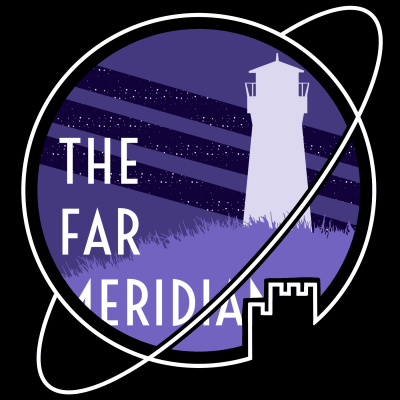

If I would have to summarize this audio drama in one word, it would be ‘delicate’. It is a wonderful experience to follow Peri in her surreal world. Every place and every person you meet is dreamlike and real at the same time. They are normal, but just off. In addition to the writing, the music and sound design help to create that feel of the mundane with a hint of magic. They are beautifully interwoven with the writing; subtle when it needs to be, powerful when the story reaches an emotional climax.
Peri is a kind, but hesitant hero. She is anxious and really does not want to go outside, meet new people and discover new places, but she has to. We follow and feel her struggles. She is constantly thinking and debating with herself, talking herself up at one moment and desperate at the other. Her (and other) mental struggles are also outwardly projected on the places and persons she comes across. The adventures are metaphors for how we cope with things such as exclusion, self-doubt, identity or depression.
During the first season, we see Peri grow as a person. In the second season she has accumulated enough confidence to extend that growth to others. Now she has the strength to confront the real issues lying underneath her fears and makes a visit to the past. I am really looking forward to what the third and final season will bring!
Tagged:
- Audio drama written by Christof Laputka
- Produced by Leviathan Audio Production
- Released in 2008-2013, 2020
- Starring Elizabeth Craynon, Tom Falcone, Jon Freda, Matthew Shale, J.P. Higgins, Adam Saul Bloch, Cynthia Pierce, Max Vogler and others
The grandmother of young genetic scientist Macallan Orsel is sick. Why? Well, that’s complicated, as Macallan soon finds out: her family is part of a group of immortals. Or at least they were, until a mysterious force started to threaten all immortals’ lives. And what’s more, Macallan seems to be the chosen one to fix it. She gets quickly entangled in a political and violent game between immortal rivalries and an American intelligence agency called The Blackdoor Group. If Macallan wants any chance to to save her grandmother – and the world – she needs to go to the headquarters of the immortals, Leviathan, hidden deep under the ocean.
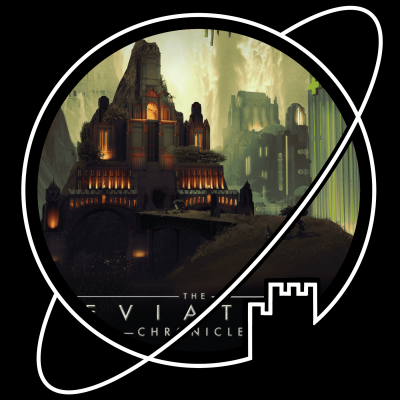

I think I listened to what has become the first ‘season’ of The Leviathan Chronicles around 2016, when the first episodes were already relatively old for a relatively new medium. But after episode 25 it just stopped. I was furious: did I pour my soul and all that time in a half-finished story? Agitatedly I googled what happened. I found a facebook post from just a month prior. The first post after years of silence. Production of the show had stopped because the wife of the maker got cancer. His passion project had to make way, of course. She passed away. My heart stopped. I was no longer furious. I only hoped he would finish his story. And he did. In 2020 he released the final episodes.
Despite that tragic and beautiful making-of story, The Leviathan Chronicles is not my favourite show. The acting is alright, the characters are fine, the story has an original enough premisse. But I wouldn’t call it layered with deep meaning or emotionally devastating. What it is, though, is fun. The Leviathan Chronicles is an adventure action movie, with chase sequences, gun fights, exotic locations and romance because, you know, a man and a woman were in the same place. Not your usual audio drama style, and I can appreciate that.
Will the story of this audio drama stick with me? No. Did I have fun? Yes.
Tagged:
- Audio drama written by Alexander Aldea and Adrienne Schaffler
- Produced by The Paragon Collective
- Released in 2020
- Starring Logan Browning, Carla Gugino, Mamoudou Athie, Keith David, Giancarlo Esposito, Constance Zimmer, Donnell Rawlings and Kenny Allen
The worst climate predictions have come true and the earth has become inhabitable due to high levels of carbon emissions. Only 80 percent of humanity is saved in an underground safe place, chosen for their score in a mysterious point system on the basis of their ‘usefulness’. The rest of humanity was ‘sorted out’. In this place we follow Hannah Ori, who gets involved in the development of The Oyster, a virtual Nirvana. Participants in the development quickly get addicted to this world of bliss. But perhaps, that is the point?
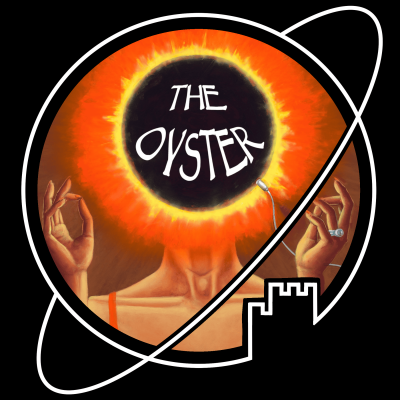

This review relates to the first season
I absolutely loved this audio drama podcast. I think it is the first cli-fi media I have consumed and it struck a chord with me. Post-apocalyptic has already been my jam, add climate change and technology-abuse to the mix and I’m all in.
But that’s not all. The podcast drew me into its world, introducing each element step by step, so you keep discovering more goings-on (sometimes alongside the protaganist). It discusses issues of race, class, and gender in a society where your worth is determined by your direct benefit to others.
In addition, it has excellent voice acting. And did I hear some influences on the sound design of horror podcast Darkest Night? At least I felt the same tingling of the spine when the theme of ministry leader Dolos Devlet sounded and I had to wait with fear and trepidation on his deep voice entering the conversation. Never a good sign.
I really hope there will be a next season that matches the quality of the first and lands the story capably after its last plot twist.
Tagged:
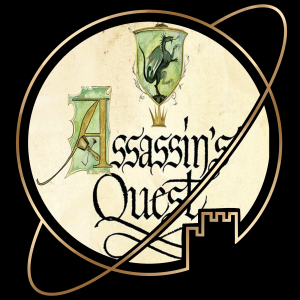
Review: Assassin’s Quest – Robin Hobb
Part three of the Farseer Trilogy. The king is dead, Prince Verity is missing in action, and Prince Regal has left the coastal duchies to their own devices against the Red Ship Raiders. The Six Duchies need Fitz now more than ever, but is he willing to reclaim his life as an assassin?
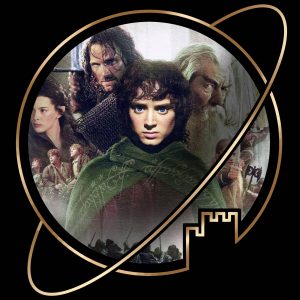
Review: The Fellowship of the Ring – Peter Jackson
Part one of The Lord of the Rings trilogy. Frodo Baggins is a halfling from a peaceful land who gets entangled in the affairs of the Big Folk when it turns out a family heirloom is the key to defeating evil forever.
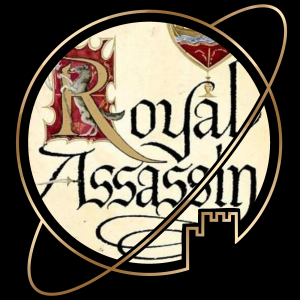
Review: Royal Assassin – Robin Hobb
Part two of the Farseer Trilogy. As Fitz recovers from his mission to the Mountain Kingdom, he soon discovers there’s no escaping from Buckkeep politics.
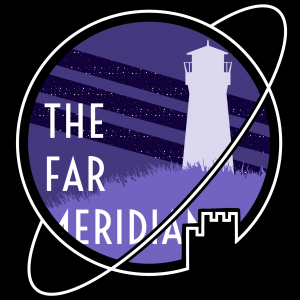
Review: The Far Meridian – The Whisperforge
Peri is an agoraphobic young woman whose home starts to show up in a new location every day. She forces herself outside in search of her missing brother.
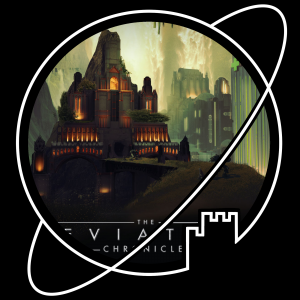
Review: The Leviathan Chronicles – Leviathan Audio Production
Macallan Orsel finds out she and her family are part of a group of immortals. Or at least they were, until a mysterious force started to threaten all immortals’ lives. Macallan seems to be the chosen one to fix it.
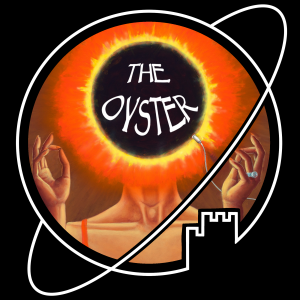
Review: The Oyster – The Paragon Collective
In a post-apocalyptic cli-fi world we follow Hannah Ori, who gets involved in the development of The Oyster, a virtual Nirvana.









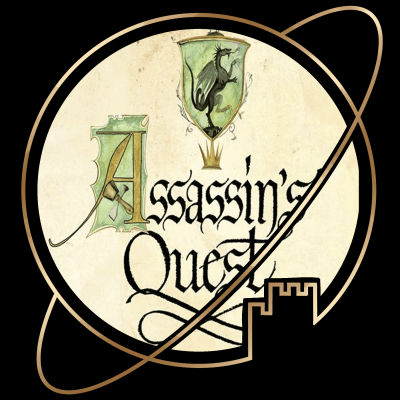

![LotR[3356]](https://escapevelocitycollection.com/wp-content/uploads/elementor/thumbs/LotR3356-qo1nbdgi8v3mxemzomuck0n379uikd2fjfqk541k0w.jpg)
